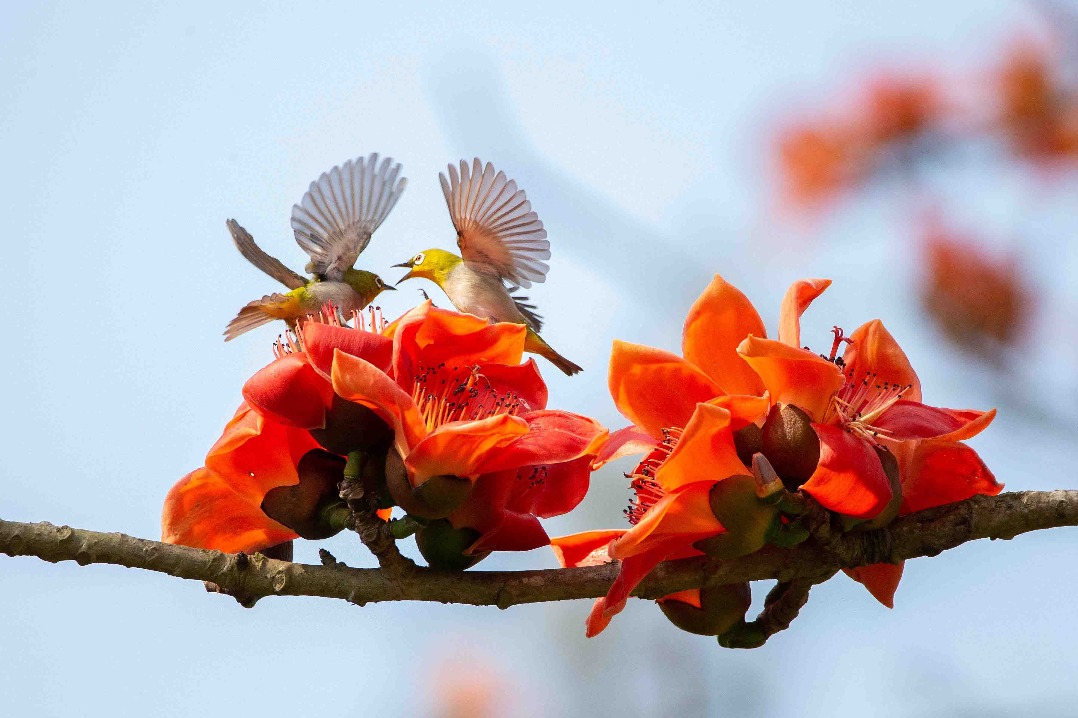New insect species found in South China urban wetland

GUANGZHOU -- Chinese researchers have discovered a new insect species, Eidoreus haizhuensis, in a wetland in Guangzhou, the capital city of South China's Guangdong province, the Guangdong Academy of Sciences said on Sunday.
According to Yu Yali, an associate researcher at the Guangdong Academy of Sciences' Institute of Zoology, the new species was found during specimen classification and identification work being carried out as part of a research team's comprehensive and systematic insect monitoring and investigation project in the Haizhu Wetland, which began in 2020.
The team's findings have been published in the international academic journal Zootaxa, revealing that the species, belonging to the order Coleoptera, measures 1.2 to 1.3 millimeters in length. Its reddish-brown body is oval and convex both dorsally and ventrally, and its legs and antennae are lighter in color.
"Usually, larger insect groups attract more attention and smaller ones are easily overlooked," Yu said, noting that the discovery enriches species diversity and is of great significance to ecological protection and biological evolution research.
Notably, though most new species are typically found in natural rural habitats, this discovery was made in the Haizhu Wetland, which spans an area of 1,100 hectares and is located in the heart of the megacity of Guangzhou.
According to the Haizhu Wetland's Lin Zhibin, biodiversity research and monitoring work have been ongoing since 2012, alongside efforts to create a habitat that supports the survival of various species. To date, 903 insect species have been documented in the wetland.
- From traditional frugality to recycling powerhouse: China's green transformation
- 8 accused of forging, selling birth certificates
- Chinese military monitors Canadian naval vessel in Taiwan Strait
- Recycling platform utilizes disused items
- Chinese scientists ID new species of dinosaur
- Artificial intelligence use by kids sparks concerns





































